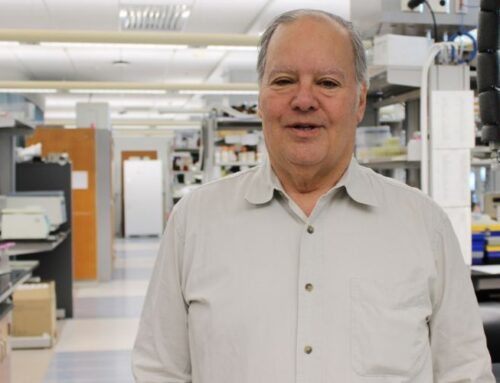Breaking the Cycle of Infection: Dr. Joseph Sorg’s Research Targets a Dangerous Hospital Superbug
By: TAMU Biology
 Clostridioides difficile (C. difficile) may not be a household name, but its effects are all too familiar to patients recovering from illness. This bacterium is one of the most common causes of hospital-acquired infections in the U.S., leading to severe diarrhea, colitis, and in some cases, life-threatening complications—especially in those recently treated with antibiotics. At Texas A&M University’s Department of Biology, Dr. Joseph Sorg is working to stop C. difficile before it ever has the chance to make people sick.
Clostridioides difficile (C. difficile) may not be a household name, but its effects are all too familiar to patients recovering from illness. This bacterium is one of the most common causes of hospital-acquired infections in the U.S., leading to severe diarrhea, colitis, and in some cases, life-threatening complications—especially in those recently treated with antibiotics. At Texas A&M University’s Department of Biology, Dr. Joseph Sorg is working to stop C. difficile before it ever has the chance to make people sick.
Dr. Sorg’s research focuses on understanding how C. difficile spores—dormant, highly resilient forms of the bacteria—germinate and become active in the human gut. His lab investigates the molecular signals that trigger this transformation, as well as the mechanisms the bacterium uses to establish infection and outcompete healthy gut microbes. C. difficile is opportunistic, it takes advantage of the damage antibiotics can do to our natural gut flora. By understanding how these spores wake up and start causing disease, we can develop smarter strategies to prevent or interrupt that process.
“C. difficile is a major problem for the healthcare system,” says Dr. Sorg. “Spores are very hard to eradicate and we’re working towards a better understanding for how C. difficile forms these spores, how these spores germinate in a host to start infection. C. difficile is a… ‘difficile’… nut to crack but I have an outstanding team that is making great progress on C. difficile spore biology.”
Why It Matters
Each year, C. difficile infections affect hundreds of thousands of people in the U.S., particularly in hospitals, nursing homes, and other healthcare settings. These infections are notoriously difficult to treat, often recurring and becoming more resistant to antibiotics over time. Dr. Sorg’s work paves the way for targeted therapies that prevent spores from germinating, reducing both the severity of infections and their spread.
This research is a critical step in fighting antibiotic-resistant pathogens and improving infection control strategies-helping keep patients safer, healthcare costs lower, and communities healthier.





